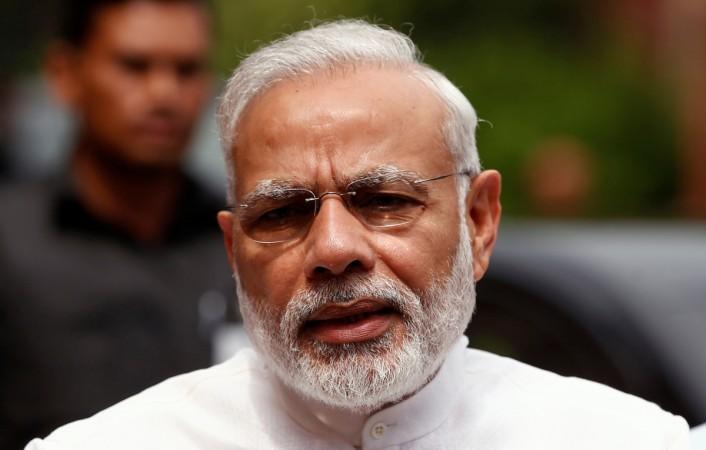
Prime Minister Narendra Modi chaired a meeting with senior ministers at his residence at around 2 am on Monday, November 14, to review the effects of demonetisation of Rs 500 and Rs 1,000 notes. The meeting came amid public anger against the ban and limited availability of cash in banks and ATMs.
The meeting was attended by Home Minister Rajnath Singh, Finance Minister Arun Jaitley, Information and Broadcasting Minister Venkaiah Naidu, Power, Coal and Mines Minister Piyush Goyal, Economic Affairs Secretary Shaktikanta Das and other top officials of the Finance ministry.
Das, who will address a press conference at 11 am on Monday, said that PM Modi was briefed about the measures taken by the government to "improve the supply of cash" to citizens.
"PM Modi reviewed the supply and availability of cash to various banks and post offices. He was briefed about steps already taken to improve supply of cash. PM Modi also took stock of the availability of cash and RBI informed that there is enough cash available in the system," Das told ANI.
A few important points of the meeting, as mentioned by Das, were:
- The last date for government pensioners to submit their annual life certificate in banks extended to January 15, 2017.
- The banks have been advised to increase the cash holding limit of the banking correspondents to at least Rs 50,000. In other cases, banks would be encouraged to increase the cash holding limits beyond Rs 50,000.
- Banking correspondents to be permitted by banks to draw cash multiple times in a day.
- To expedite the process, a task force set up under the chairmanship of RBI Deputy Governor. It will have representatives of banks as its members. This task force has been instructed to work out a strategy to expedite whole process of recalibration of the ATMs.
- Micro ATMs would be deployed across the country "to dispense cash against debit and credit cards."
- The limit for transactions like payment of hospitals, utility bills and court fees, where the old series of Rs 500 and 1000 notes were being accepted, has been extended from November 14 to November 24.
- All government departments and central public sector undertakings will maximize their e-transactions.
- The RBI has advised the National Payments Corporation of India to waive its transaction charges on old transactions settled through financial switch till December 31.
- Banks have been told to waive their charges for various kinds of transactions.
- There will be separate queues for senior citizens and divyang persons in banks as well as those who are visiting banks only to exchange old series of notes for new notes.
On Sunday evening, the government had announced that ATMs are being "recalibrated" to dispense the new series of Rs 500 and Rs 2,000 notes and that the withdrawal limit has been increased from Rs 2,000 to Rs 2,500. The limit at which citizens can exchange their old currency notes for new ones at the bank has also been increased to Rs 4,500 per day.
#WATCH: Exemption on old series of Rs 500, 1000 notes for certain categories extended till November 24 midnight, says Economic Affairs Secy pic.twitter.com/68RDtdQPTh
— ANI (@ANI_news) November 14, 2016
Meanwhile, people continue to stand in long queues outside banks and ATMs waiting for their turn to withdraw cash or exchange old currency notes for the new ones. Several ATMs across the country have run out of cash.
Demonetisation of Rs 500/1000 notes: People lined up outside an ATM in Patna waiting for their turn to come. pic.twitter.com/EPcLyNRRaE — ANI (@ANI_news) November 14, 2016
'No cash in ATMs' notices put-up outside some ATMs in Kolkata (WB) pic.twitter.com/z6pg8LZLaD
— ANI (@ANI_news) November 14, 2016
Free of cost food being offered at a 'dhaba' in Maharashtra's Akola as people are being inconvenienced due to #Demonetisation pic.twitter.com/k2zxlJwayF — ANI (@ANI_news) November 14, 2016
People seen waiting for their turn outside ATM in Shakarpur area of Delhi in early morning hours pic.twitter.com/9tsyivXtAX
— ANI (@ANI_news) November 14, 2016
#WATCH:Just a matter of some days,our future will be safe then.Have to support PM Modi, says specially abled person outside ATM in CP(Delhi) pic.twitter.com/nDVfhEuC5k — ANI (@ANI_news) November 14, 2016
















